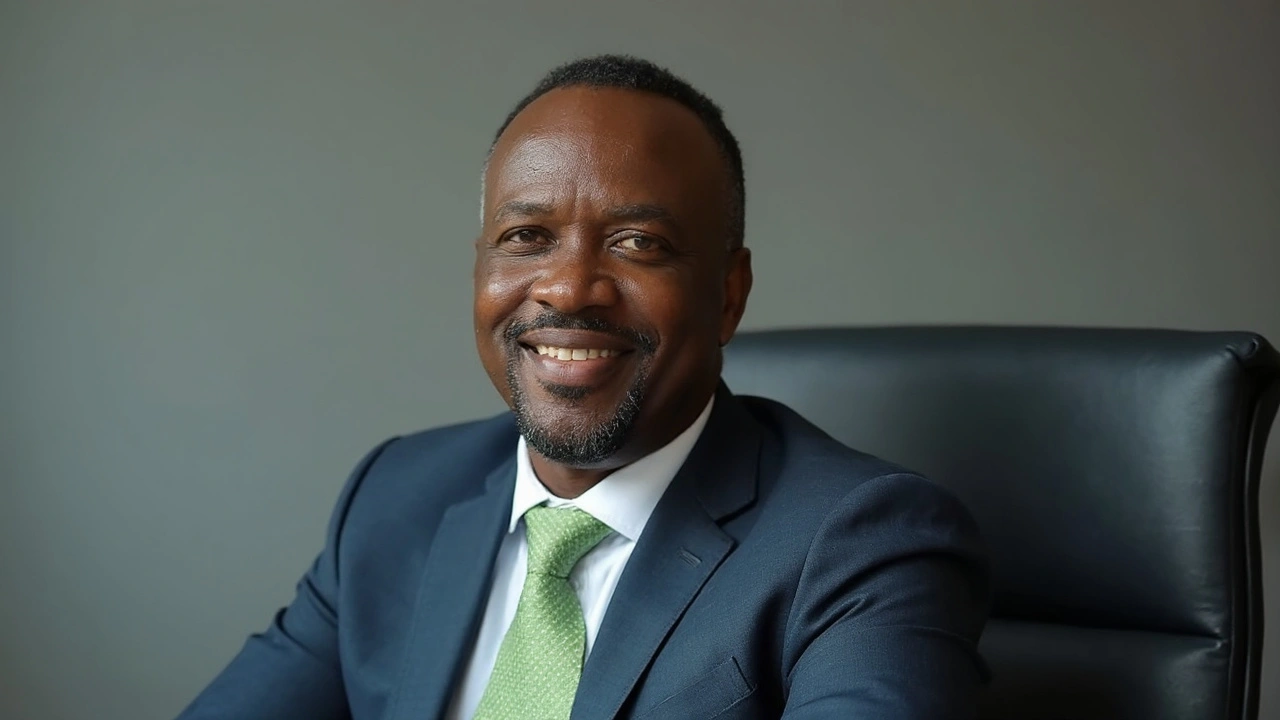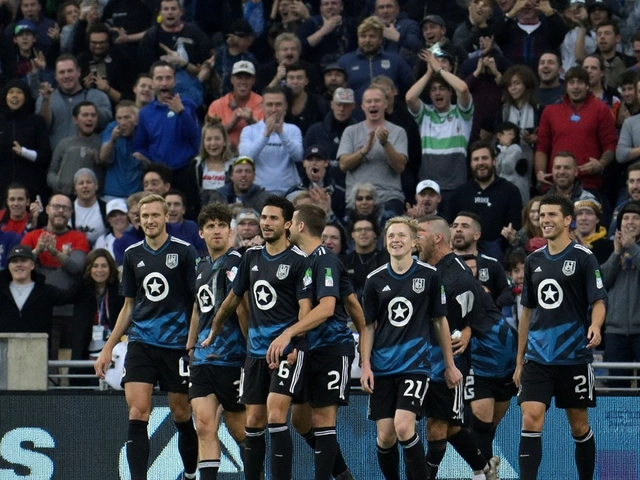
Lagos Court's Landmark Decision
In a decisive ruling that echoes through Nigeria's corridors of power, the Federal High Court in Lagos has concluded a high-profile case involving former Central Bank of Nigeria (CBN) Governor Godwin Emefiele. The court ordered the unyielding forfeiture of properties valued at a staggering ₦12.18 billion. This judgment, delivered in August 2024, is a significant triumph for the Economic and Financial Crimes Commission (EFCC), spearheaded by prominent legal figure Rotimi Oyedepo (SAN).
The court's decision follows intense scrutiny and evidence gathering conducted by the EFCC, which alleged that Emefiele had engaged in systemic corruption over his near-decade-long tenure as the head of Nigeria's central bank from 2014 to 2023. The properties in question include coveted real estates located in the affluent neighborhoods of Lekki and Ikoyi in Lagos, as well as a sprawling industrial complex under construction in Agbor, Delta State. These sites were reportedly acquired through shady dealings, with the EFCC claiming that Emefiele orchestrated kickbacks in exchange for preferential foreign exchange allocations to select companies.
Legal Framework and Implementation
This case unfolded under the framework of Section 44(2)(B) of the Nigerian Constitution and Section 17 of the Advance Fee Fraud Act, legal pillars that empower the court to sanction such forfeitures. The EFCC's approach included the statutory requirement to publicize the interim forfeiture in a national newspaper, a move ensuring transparency and in search of potential claimants to these assets. However, the absence of any contestation to these claims led Justice Deinde Dipeolu to cement the final forfeiture order.
The case involving Emefiele is not an isolated event. It follows a noticeable pattern of forfeitures previously linked to him, including significant sum seizures—namely $4.7 million and ₦830 million. These actions are part of a broader strategy by anti-corruption investigators to reclaim wealth that has ostensibly been funneled away unlawfully by public office holders and their collaborators.
This latest development not only consolidates the EFCC’s crackdown on corruption but also sends a message about the Nigerian judiciary's increasing resolve to uphold integrity and accountability at the highest levels of public service. The massive scale of the properties involved, coupled with the sector-wide implications, positions this ruling as a significant chapter in Nigeria's ongoing battle against corruption.
April 8, 2025 AT 00:00
I'm glad the court acted decisively, but let's be honest: this is the third or fourth major forfeiture tied to Emefiele. Where are the prosecutions? Where are the people who actually received the kickbacks? The system is still protecting the powerful behind the scenes. We need systemic reform, not just symbolic seizures.
April 9, 2025 AT 04:12
Finally, someone got held accountable. I’ve been saying for years that the CBN was a private club for the connected. Real people suffered while these guys bought mansions in Lekki. Hope this sends a message to every corrupt official thinking they’re untouchable.
April 9, 2025 AT 20:18
i think this is a moment where nigeria can finally start healing... not just by taking stuff back but by rebuilding trust. people are tired of seeing the same names over and over. maybe this is the crack in the wall we’ve been waiting for. hope it leads to real change, not just another headline.
April 10, 2025 AT 00:04
Oh wow, a billionaire got caught with a few houses. How shocking. Meanwhile, the same government gave out billions in oil subsidies to cronies and nobody even blinked. This is like arresting a guy for stealing a loaf of bread while the bank vault is wide open.
April 10, 2025 AT 22:56
Lekki mansions turned into court exhibits? That’s the kind of plot twist you’d see in a Nollywood drama-but this ain’t fiction, folks. This is real life, and it’s messier than a Lagos traffic jam. The people who built those homes with stolen cash? They thought they were untouchable. Turns out, the law has a long memory... and a very sharp pen.
April 11, 2025 AT 15:29
The judicial process has been observed with due diligence and in strict accordance with constitutional provisions. The forfeiture, having been unchallenged, represents a lawful and necessary outcome. One must not confuse procedural legitimacy with political opportunism.
April 11, 2025 AT 21:26
This is what accountability looks like. No grand speeches, no fanfare. Just the law doing its job. If this inspires even one young Nigerian to say 'I won’t take the bribe,' then it’s worth it.
April 13, 2025 AT 15:00
you know what’s wild? the guy who ran the central bank for almost 10 years... and now his assets are being auctioned off like garage sale furniture. life really does have a weird sense of humor. hope the money goes to schools, not more government offices.






April 7, 2025 AT 04:43
This is just the tip of the iceberg. They always seize assets after the guy is out of power. Who approved the forex allocations in the first place? The same people who now act shocked. This isn't justice, it's political theater.